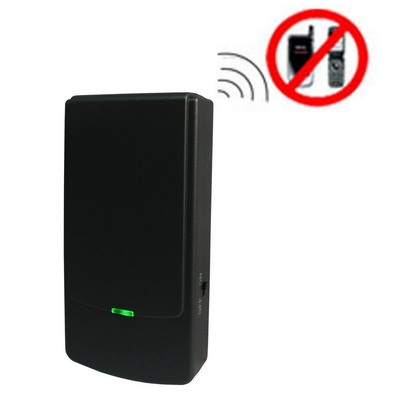
Examining the Relationship Between Personal Privacy and Pocket Wi-Fi Jammers for Privacy Protection
In the modern digital age, personal privacy has become a paramount concern for individuals navigating an increasingly interconnected world. The pervasive nature of wireless communications, from Wi-Fi networks to mobile data services, has introduced both convenience and vulnerability. Among the various tools and strategies developed to protect personal privacy, pocket Wi-Fi jammers have emerged as a controversial yet intriguing solution. This article delves into the complex relationship between personal privacy and the use of pocket Wi-Fi jammers, exploring their potential benefits and the broader implications for society.
The Quest for Personal Privacy
Personal privacy encompasses the right of individuals to keep their personal information secure and free from unauthorized access. With the advent of the internet and wireless technologies, this right has been increasingly challenged. From data breaches to surveillance, the digital landscape is fraught with risks that can compromise an individual’s privacy. Consequently, people have sought various methods to safeguard their personal information and communications.
Understanding Pocket Wi-Fi Jammers
Pocket Wi-Fi jammers are small, portable devices designed to disrupt Wi-Fi signals within a certain range. By emitting radio frequency signals that interfere with Wi-Fi communication, these jammers can prevent devices from connecting to wireless networks. The primary appeal of such devices lies in their ability to create a private, secure environment by blocking unwanted wireless access.
Potential Benefits of Pocket Wi-Fi Jammers
- Protection from Unwanted Surveillance: One of the primary motivations for using a pocket Wi-Fi jammer is to prevent unauthorized access to personal information. In public spaces, where Wi-Fi networks are often unencrypted and insecure, individuals may use these jammers to block potential eavesdroppers from intercepting their communications.
- Securing Personal Devices: By preventing Wi-Fi connections, pocket Wi-Fi jammers can safeguard personal devices from various forms of cyber attacks, such as malware distribution or hacking attempts. This is particularly relevant in environments where Wi-Fi security is questionable.
- Preventing Data Collection: Many public Wi-Fi networks engage in data collection practices, tracking users’ browsing habits and personal information. A pocket Wi-Fi jammer can help individuals avoid such data collection, thereby protecting their privacy.
Ethical and Practical Considerations
While the use of pocket Wi-Fi jammers may offer certain privacy benefits, it also raises significant ethical and practical considerations. The impact on other users and the potential disruption of essential services must be carefully weighed.
- Impact on Public Spaces: In public areas such as cafes, libraries, or airports, the use of a Wi-Fi jammer can disrupt the connectivity of others who rely on these networks for legitimate purposes. This can lead to inconvenience and frustration for those affected.
- Emergency Services: Wireless networks are often used for critical communications, including emergency services. Interference caused by Wi-Fi jammers can hinder these essential functions, posing potential risks to public safety.
- Responsible Use: The ethical implications of using a Wi-Fi jammer hinge on responsible and considerate use. Individuals must be mindful of the broader impact on their surroundings and avoid disrupting essential services or infringing on the rights of others to access communication networks.
Balancing Privacy and Connectivity
The relationship between personal privacy and the use of pocket Wi-Fi jammers underscores the broader tension between individual rights and collective needs. While privacy is a fundamental right, the responsible use of technology is essential to maintaining a balance between protecting personal information and ensuring the functionality of public communication networks.
Conclusion
Pocket Wi-Fi jammers represent a fascinating intersection of technology and privacy protection. By understanding the benefits and ethical considerations associated with their use, individuals can make informed decisions about safeguarding their personal privacy. The broader implications for society highlight the need for a nuanced approach that respects both individual rights and collective needs. In the ever-evolving digital landscape, the quest for privacy will continue to shape the development and use of technologies like pocket Wi-Fi jammers.
